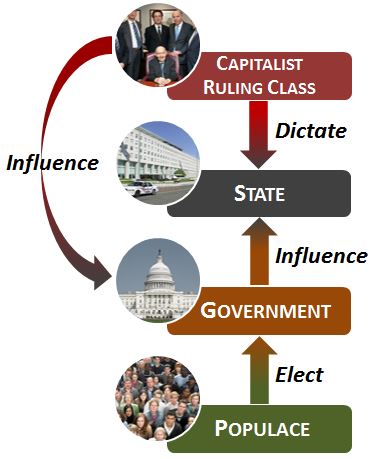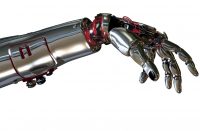Part 2
■ Part 1 of this article was published in February.
All the wealth created by labour in the production process is appropriated by capital, only appearing in its money form in the exchange process, with a portion of the proceeds then being redistributed back to labour through the wage system. Workers, individually or collectively, through their unions, will try to bargain with the capitalist for a pay rate, which varies from job to job and country to country and is dependent on a number of factors.
The point here is that the same exploitative process is in operation: it’s only the rate of exploitation that varies.
In Ireland and other western countries the working class has risen from super-exploitation in the work-place, but that doesn’t mean it has been eradicated: it has only moved, along with the labour-intensive industries, to countries of the global south.
All too often, class is categorised and defined in monetary terms or cultural terms: wage levels, people’s customs, accents, traditions, place of residence, etc.; but this definition will never reveal the class system that exists but will only create prejudices.
Without doubt those on very high wages and senior managements are easily seduced by the capitalists, so they become apologists for them; they aspire to join them, and so cannot be relied upon as allies when we are trying to unite the working class.
Being conscious of this reality, we still do not serve our interests by thinking of class in these terms, as this only creates divisions within the working class. In fact understanding class as a social or cultural category is one of our big weaknesses and one of the reasons why reformism becomes prevalent in so many left-wing and social-democratic movements: because these forces underestimate the dynamics behind class power.
In antagonistic modes of production there must exist legal and political relations, dictated by the state authority to protect the interests and privileges of private-ownership structures. When citizens begin to question aspects of the system and to agitate on different issues that strike at those ownership structures—as for example in recent years over water and housing—the class nature of the state exposes itself in how it reacts to such agitation.
This is the true essence of the state: creating the bodies and institutions that protect and allow the ruling class to maintain power to suit their interests. The capitalist ruling class can only rule so long as private ownership is at the core of state law and policy; hence the importance of deconstructing Lenin’s conclusion that all forms of capitalist democracies become the dictatorship of the bourgeoisie (the owners of capital), because they dictate the laws that are enshrined in the constitutions and treaties of states by the power they exert on the structures and institutions within society.
The state, therefore, though complex in its web of interconnectedness, is simple in its objective. Quite clearly, not all bodies of the state are run for and by the ruling class, but “the state machine is bound by a thousand threads to the bourgeoisie.” Working-class, left-wing and labour bodies that operate within the limits set by the state apparatus, such as the Irish Congress of Trade Unions, campaigning bodies (such as Right2Water, housing coalitions) or political parties (Sinn Féin, Socialist Party, People Before Profit) put forward demands that are totally within the limits of the system. They get drawn into debates over taxes—government revenue and expenditure, cost-rental versus social housing, or the minimum wage, for example—that do nothing to expose the class nature of the state but are constantly dragged into the swamp of bourgeois politics, accepting the rules of the game.
The dominant class—the ruling class—when it suits, uses these forces as a way to maintain the illusion of impartiality, so they are tolerated, even exalted, sometimes even subsidised, if they can be used to sow confusion within the working class.
When these bodies don’t dissent fundamentally from the ruling ideology, they conform to a greater or lesser degree to that ideology.
This is the strength of the system; but it also reveals a weakness, a chink in the armour. It is the inconvenience of national democracy that curtails the most ruthless capitalist exploitation in the west. Only because states have had to make concessions to working-class forces do we have the type of welfare policies and support in western countries that are now under attack.
Even so, these concessions were made at a time when the socialist bloc was an economic and ideological threat to capitalism. Since that threat was internally dismantled by gangster officials, politicians, and western-backed anti-communist forces, the imperialist powers have moved to dismantle the welfare systems of the western capitalist countries, while at the same time they have intensified the super-exploitation of the global south.
The last line of defence to protect the working class is the national democratic structures, however limited they are in their capitalist form.
It is no wonder, then, that in Europe, as a way to override national democracy, a supranational body, the European Union, was established. The drive towards making the EU a superstate or a United States of Europe, with all the hallmarks of a state, as described above, is primarily for consolidating European imperialist power in order for European imperialism to compete against other imperialist blocs.
What separates the EU from other imperialist powers is that, by way of the unelected European Commission, it alone is allowed to draft EU laws and directives and so has been able to create legal, political and ideological institutions and structures that not only have privatisation enshrined at their core but have made it illegal for any EU member-state to democratically choose an alternative socio-economic system.
Democracy has been bypassed; accountability has become non-existent; and all power resides at the centre in an unelected body, which is beholden only to lobbyists acting on behalf of the capitalist class.
If the gravity of this democratic deficit is ignored by progressive forces, in the not-too-distant future the worst capitalist exploitation will once again encroach on the working peoples of Europe as well as accelerating elsewhere around the globe.
If those progressive people working within the trade union movement fail to distinguish the wood from the trees, if they focus only on their own sectional demands rather than politically educating their members on the capitalist wage system, then, rather than having a seat at the table, trade unions will become redundant, both for their members and for the ruling class.
If local communities and campaign groups fail to join the dots between the financial crisis, austerity measures, the housing crisis, the environmental crisis, and their cause—the capitalist system——we leave ourselves and future generations vulnerable to absolute catastrophe and destruction, both at the individual and the social level.
If parties of the left and their members choose to ignore the class nature of the state, of the EU and all capitalist centres of power, those forces that profess to be on the side of the working class will in fact mislead the working class, and an unconscious class will wake up to find itself even more powerless!
Our weakness is the ability of the ruling class to divide us on ideological grounds. It is our lack of class-consciousness and of clarity of understanding of our class society that is preyed upon. We see the ranks within our class being easily cajoled; careerism buys many off; reformism and political opportunism are rampant; while electoral politics runs roughshod over strategic campaigning on transformative demands, bringing those on the left foolishly into the fold of the establishment’s physical space and its narrative of budgets, taxes, and abiding by EU rules.
Seldom if ever will you hear Eoin Ó Broin (Sinn Féin) or Richard Boyd Barrett (People Before Profit, i.e. Socialist Workers’ Party) or others on the left in the public eye, when debating such issues as wealth, inequality, austerity, or housing, clearly and properly link and explain class, the state, and imperialism—the holy trinity in developing class-consciousness—in their analysis. For all their good intentions, they either do not fully understand or do not want to fully understand the class nature of the state and the dictatorship of the bourgeoisie.
If Sinn Féin or the Socialist Workers’ Party were a real imminent threat to the ruling class they would not be tolerated; the full power and influence of the Irish state and the EU would come down upon them, as has happened elsewhere when they seemed to threaten the capitalist class—SYRIZA in Greece being a classic example.
They may become a threat to the established political parties in government; but real power resides with those who own the means of production and the state that protects their privileged position.
These are signs of the ideological deficit on the left in Ireland and elsewhere and of a class that is diffuse, caught up between old republican politics, social democracy, socialist ideals, social justice, and ignorance.
If we are to build a movement and unify around a transformative programme that promotes the interests of the working class while also exposing the class nature of society and the weaknesses within the class enemy, we must strive to rid ourselves of our own fallibilities in whatever manifestations they take.
It is incumbent on members of all left parties, trade unions, community organisations, progressive movements and individuals who have an understanding of the class nature of society to influence and educate others on the capitalist illusions that permeate society.
The class enemy is more powerful than ever before, and has more wealth and resources at its disposal than at any other time in history; but it is not omnipotent. The imperialist centres feed off other countries, with their tentacles wrapped round each one, sucking the life blood from within, with their array of treaties, trade deals, conditional loans, and military power.
It is, in fact, the sovereignty of independent states that is the key to breaking the power of imperialist rule. It will not do to merely publicise and acknowledge the reality of class struggle: we have to make clear to the rank and file that what we want, as a class, is to overthrow the capitalist system.
No elected government, no matter how progressive its programme, can deliver this, and no compromises or capitulation can be tolerated if we are to rid the world, piece by piece, country by country, of this parasitic, exploitative, destructive and barbaric system.
But for this to happen we, the working class of all nations and nationalities, have to be guided by the principle that the class struggle extends to the recognition of the necessity of the dictatorship of the proletariat, i.e. a state of and for the working class, where the means of production are held in common ownership by all citizens and are directed and protected by a state apparatus that is “tied by a thousand threads” to the working class.
This recognition, as Lenin pointed out, “is what constitutes the most profound distinction between the Marxist and the ordinary petty (as well as big) bourgeois.” Thus begins the socialist revolution, the conscious dismantling and destruction of the old state apparatus and its replacement by constructing new institutions, new democratic structures, new treaties, new trade agreements, that are in the interests of the working class, who long for equality, peace, and prosperity.






